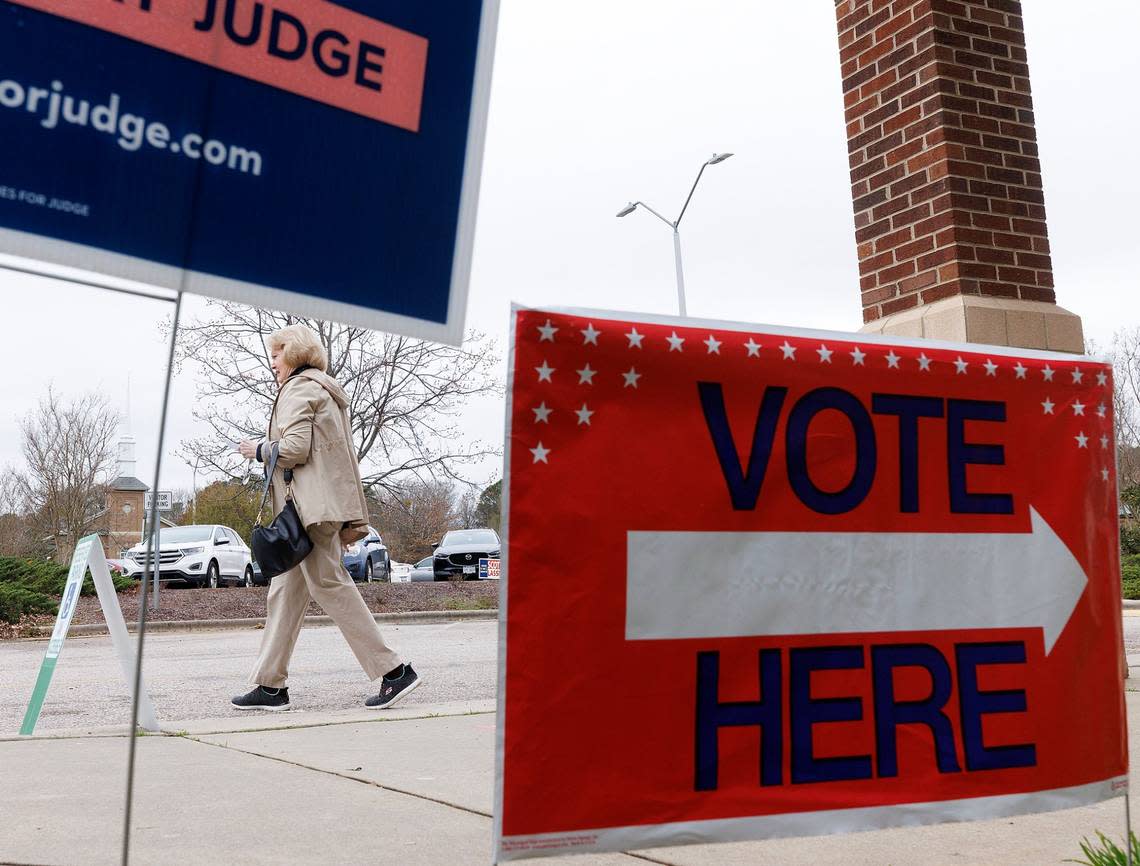NC House passes bill requiring elections board to work with ‘election integrity’ groups

North Carolina House Republicans passed a bill that would require the State Board of Elections to work with so-called “election integrity” groups to update voter rolls.
These groups typically push for stricter rules in election administration and tighter maintenance of voter lists.
The bill’s sponsor, Rep. George Cleveland, an Onslow County Republican, said these groups work to find errors in the voter rolls and their research should be considered by the state board.
“We need to clean up our rolls between now and November,” Cleveland said.
Democrats expressed concerns that the groups could push the state board to disqualify eligible voters.
“I’m really concerned about the message that this bill sends,” said Rep. Allison Dahle, a Wake Democrat, “...that we don’t have any faith in our voting system. Our voting system has been a good voting system until one team lost and got upset.”
The bill itself, House Bill 1071, does not define what an election integrity group is. When asked for an example of one by a Democrat on the Rules Committee, Cleveland said he knew of two individuals leading such efforts.
He did not know the real name of one of them, he said, but the person went by the moniker “Totes Legit.”
“He (Totes Legit) has consistently over the past several years sent note of these problems to the state board,” Cleveland said.
“I’m concerned about somebody by the name of ‘Totes Legit’ looking at voter rolls and deciding who can be on them and who can’t,” Dahle said. “...I feel as though this is a chance for anybody to sign up and be a voter integrity group and that concerns me.”
Pat Gannon, a spokesperson for the State Board of Elections, said the bill could run afoul of federal law, which requires voter list maintenance efforts to be conducted in a uniform and nondiscriminatory way.
The bill “appears to require the state board to remove voters from the rolls based on lists supplied by any third party that claims to be an ‘election integrity organization,’” Gannon said. “...It would be difficult for the state board to determine whether any such private organization is gathering lists of voters to remove in a uniform and nondiscriminatory way.”
The House also unanimously passed a bill that would regulate the use of AI in political ads.


